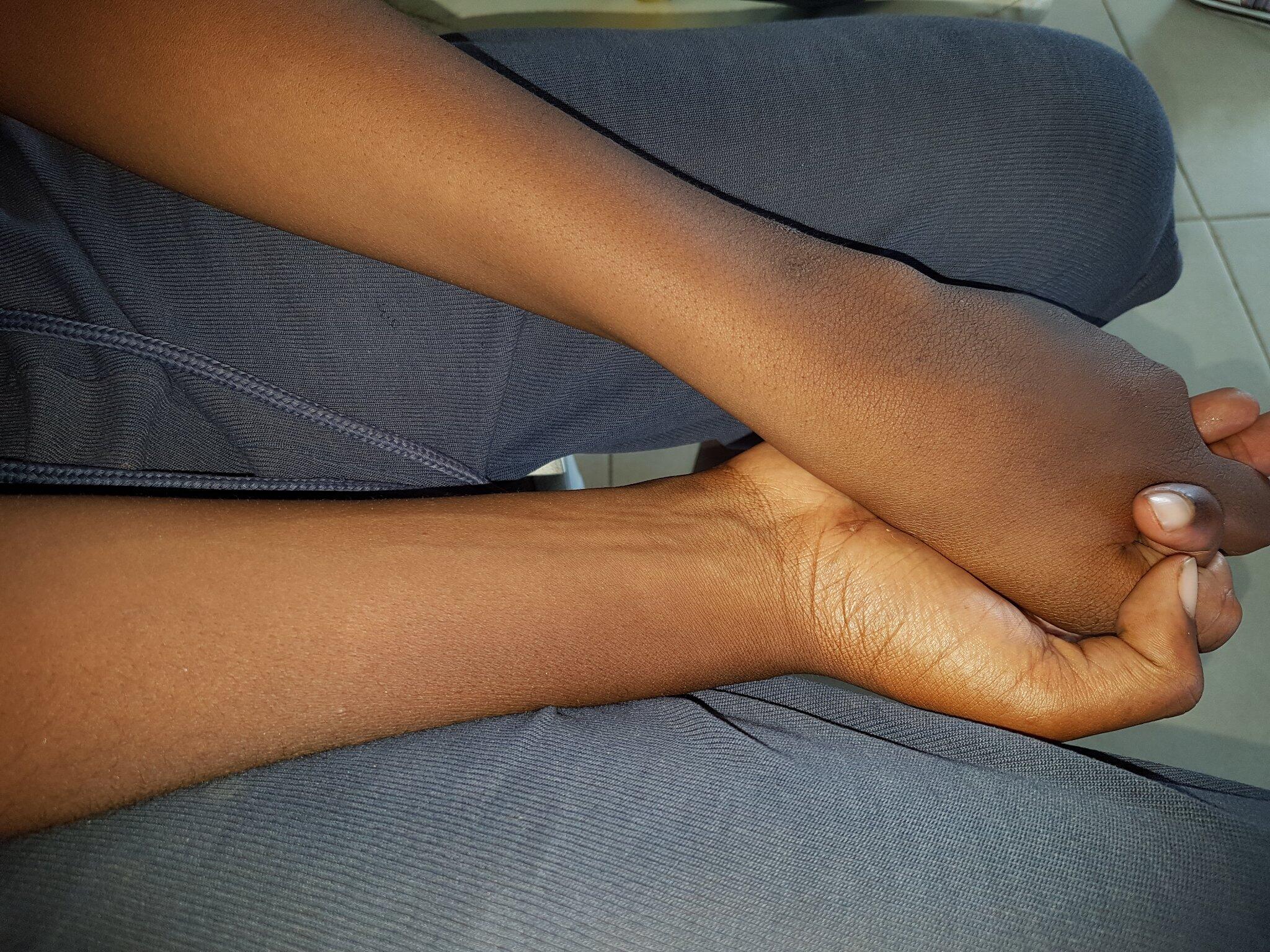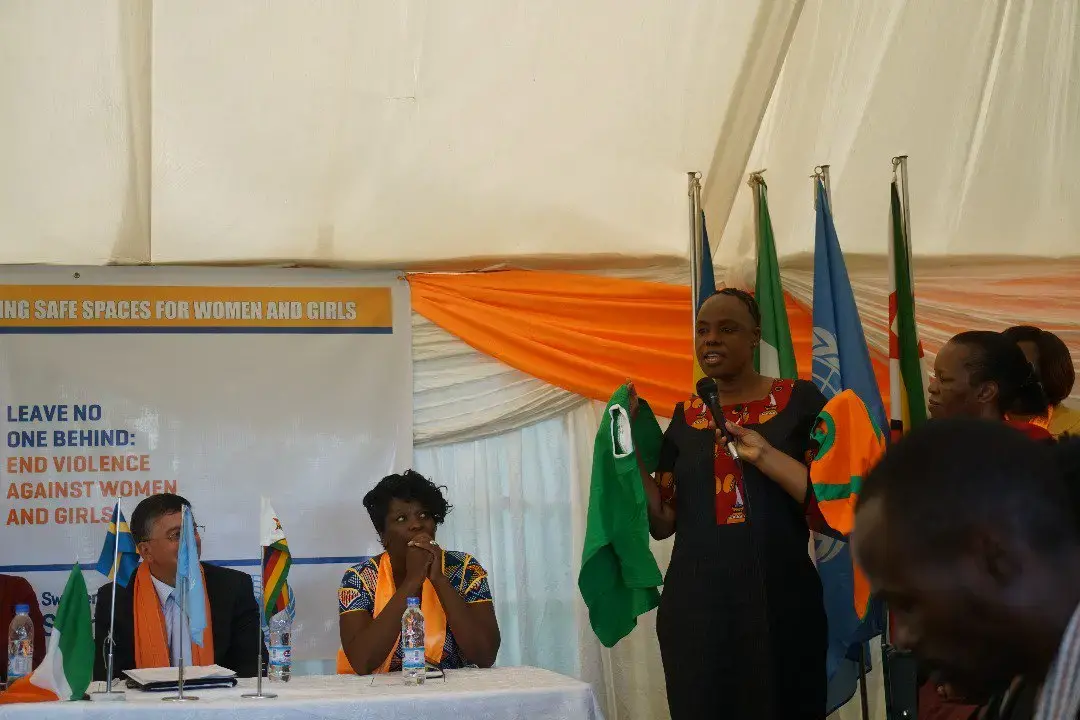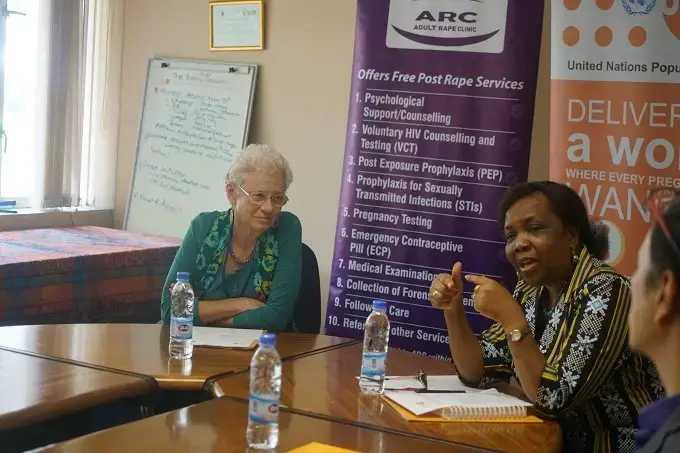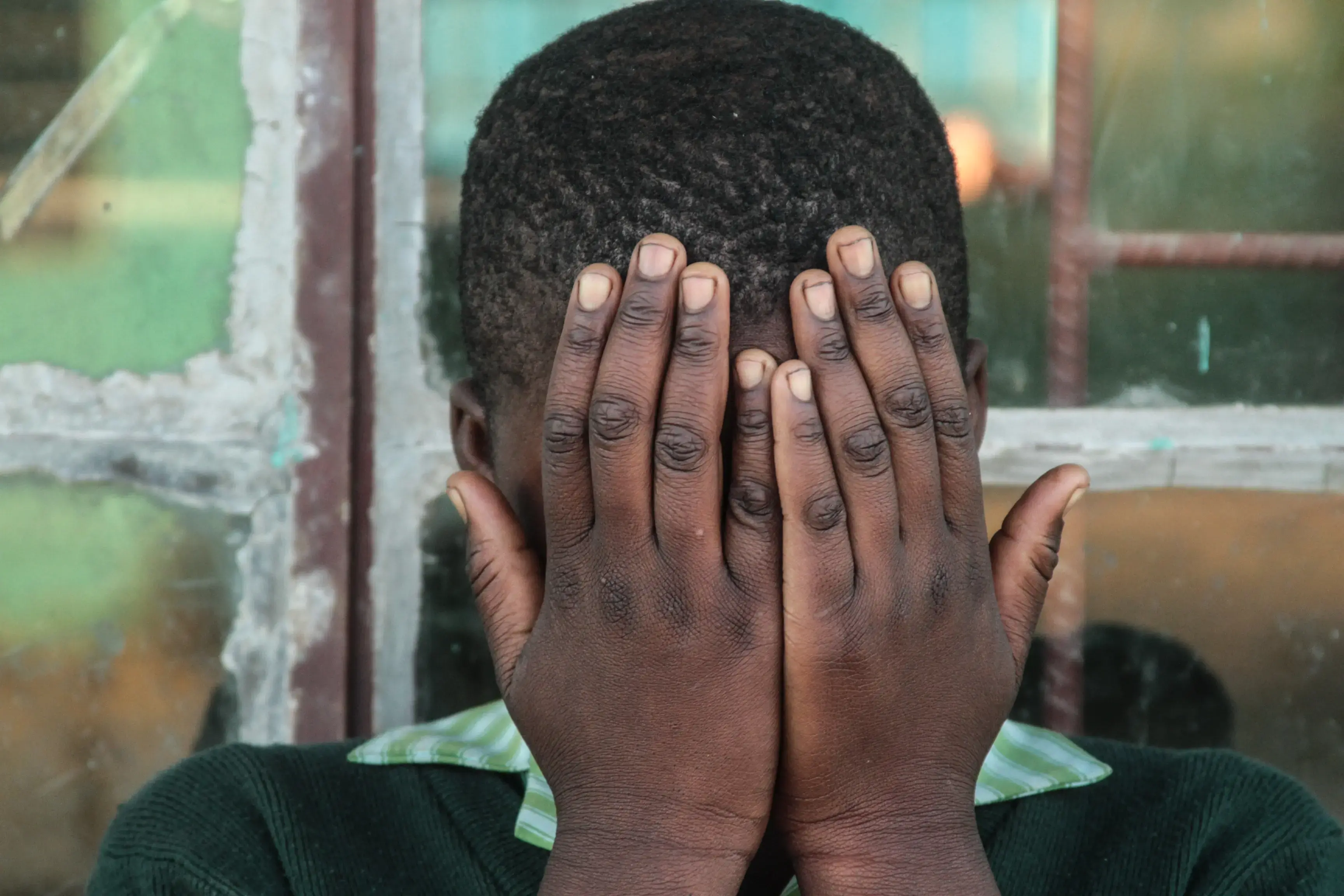Harare/New York, 7 July 2020 – Every year, millions of girls are subjected to practices that harm them physically and emotionally with the full knowledge and consent of their families, friends and communities, according to the State of World Population 2020, recently launched by UNFPA, the United Nations’ sexual and reproductive health agency.
Findings from the State of the World Population are showing that all over the world, including in Zimbabwe, tens of thousands of girls are, on a daily basis, having their health, rights and futures stolen from them through the prevalence of Gender Based Violence (GBV) and harmful cultural practices. At least 19 harmful practices, ranging from breast ironing to virginity testing, are considered human rights violations, according to the UNFPA report, which focuses on the three most prevalent ones: female genital mutilation, child marriage, and extreme bias against daughters in favour of sons.
“Harmful practices against girls cause profound and lasting trauma, robbing them of their right to reach their full potential,” says UNFPA Executive Director Dr. Natalia Kanem.
In Zimbabwe, GBV and harmful practices are undoing a lot of gains made in development, and with the COVID19 pandemic the situation is worsening. The 2015 Zimbabwe Demographic Health Survey (ZDHS) confirms that violence against women is rife and affects all women, regardless of geographic location, wealth or education. At least 35% of women and girls, 15 to 49 years, have experienced some form of GBV at least once in their lifetime. At the same time, Zimbabwe is among the 20 African countries with the highest child marriage rate. According to MICS 2019, about 1 in 3 (34%) of women of the ages 20-24 were first married or in union before the age of 18. Accelerated action is urgently called for in Zimbabwe to address this problem amongst other harmful practices, that are obstacles to growth and development.
“The Sexual and Reproductive Health consequences of early marriage can be devastating,” says Dr. Esther Muia, UNFPA Zimbabwe Country Representative. “Teenage pregnancies, from the many young girls married off at an early age, result in early pregnancies, increasing the risk of maternal deaths and birth injuries such as fistula to the mothers and brain damage to babies due to prolonged, obstructed labour as the young girls’ bodies are not yet ready for child birth.”
This year’s State of the World Population report launch comes in the context of the COVID-19 pandemic that has affected programmes and work to end GBV and harmful cultural practices. Globally, COVID-19 will disrupt efforts to end child marriage, potentially resulting in an additional 13 million child marriages between 2020 and 2030. While progress has been made in ending some harmful practices worldwide, the COVID-19 pandemic threatens to reverse gains even more. It calls for urgent accelerated action in Zimbabwe as well.
“The EU has demonstrated its commitment to eliminating all forms of violence against women and girls globally through the Spotlight Initiative, the flagship programme of the EU-UN strategic partnership,” said Mr Timo Olkkonen, European Union Ambassador in Zimbabwe. “The UN is collaborating with the government of Zimbabwe and Civil Society Organisations in its implementation of this USD$30 million programme. The initiative has identified child marriage as one of the urgent harmful practices that need to be addressed in Zimbabwe. Child marriage is a gross violation of child rights and robs girls of their childhood, preventing them from reaching their full potential and in most cases, resulting in increased poverty. Let us allow girls to be children first before they become wives and mothers.”
Countries that have ratified international treaties such as the Convention on the Rights of the Child have a duty to end the harm, whether it is inflicted on girls by family members, religious communities, health-care providers, commercial enterprises or state institutions. Many have responded with laws, but laws alone are not enough. Decades of experience and research show that bottom-up, grassroots approaches are better at bringing change, the UNFPA report states.
“Gender-based violence is the single greatest threat to women’s empowerment and gender equality,” said Ireland’s Ambassador in Zimbabwe Fionnuala Gilsenan. “Achieving gender equality is a central element of Ireland’s foreign policy which is why we work closely with UNFPA’s GBV 365 programme in Zimbabwe. All of us must join hands to put a stop to GBV and name it for what is it, a profound violation of human rights.”
Ending child marriage and female genital mutilation worldwide is possible within 10 years by scaling up efforts to keep girls in school longer and teach them life skills and to engage men and boys in social change. Investments totaling $3.4 billion a year through 2030 would end these two harmful practices and end the suffering of an estimated 84 million girls, the report shows.
“Ending GBV and all forms of discrimination against women and girls is a priority for Sweden and we continue to call for collective action to end this vice” says the Swedish Ambassador Åsa Pehrson. “In an effort to tackle the harmful norms that are perpetuating gender based violence, Sweden is supporting the SpeakOUT against Sexual Gender Based Violence Campaign. This national campaign is harnessing the power of faith to reduce SGBV in churches, faith spaces and the wider community.”
Although GBV remains a huge problem affecting women and girls progress has been made to ensure an appropriate legislative framework is in place to address this. The 2006 Domestic Violence Act highlights provisions available to address sexual, psychological and even financial abuse in domestic settings. Also, the 2013 Constitution of Zimbabwe supported by the Criminal Law Codification and Reform Act, the National Gender Strategy, the National GBV Strategy, the National Plan of Action Against Rape, the National Plan to End Child Marriage sets the framework for protecting women and girls that remain the large populations affected by violence. Other efforts include:
- Various stakeholders are working to provide timely access to health services for survivors of sexual violence through the One-Stop Centers and safe shelters that provide much required medical services as part of the referral system.
- Responding to GBV in Emergencies and humanitarian settings – cyclone, drought – reducing the vulnerabilities of women and girls in these situations has been key
- Restoring the dignity of girls through fistula repair surgery – many young girls subjected to early marriage who suffer devastating birth injuries such as fistula can now be repaired
“Preventing gender-based violence and child marriage certainly requires a strong legal foundation,” said Canada Ambassador’s in Zimbabwe Mr Rene Cremonese. “But, in the end changing the culture which allows for these violations is critical – enabling girls to know their rights and fulfill their dreams, raising boys who understand the value of gender equality, not only in terms of justice but also to enrich their own lives, and convincing adults, from parents to societal authority figures, that women’s empowerment promotes stronger, safer and more prosperous communities.”
A number of national efforts to end GBV and harmful cultural practices are being implemented led by the Government of Zimbabwe in collaboration with civil society organisations, academic institutions and others with financial support from the Health Development Fund (supported by Britain, Ireland, Sweden and the European Union); the Spotlight Initiative to Eliminate Violence against Women and Girls (supported by the European Union) and the GBV 365 National Programme (supported by Ireland and Sweden).
“Zimbabwe is highly committed to ensuring that matters of discrimination against women and other related gender inequalities are addressed in a manner that conforms with international standards and expectations,” said Permanent secretary in the Ministry of Women’s Affairs Mr Melusi Matshiya. “Accordingly, Government remains guided by international, regional instruments and protocols that the country is party to. To complement these international and regional instruments, Government has enacted laws and developed policies that facilitate, support and strengthen the implementation of such instruments as CEDAW and the Beijing Platform for Action.”
For more information and media queries please contact
Martin Jörnrud, Head of Political and Commercial Section Embassy of Sweden Email: martin.jornrud@gov.se
EU Public Affairs Officer Dorothe Grebe Tel:+263-772279210 Email: Dorothe.GREBE@eeas.europa.eu
Magdalene Chavunduka, Ministry of Women’s Affairs, Community and Small and Medium Enterprise Development Tel: 263773404449 Email: magdalanechavunduka@gmail.com; Bertha Shoko, Communications Analyst--UNFPA: Tel: 263 772 782 299 Email: shoko@unfpa.org





